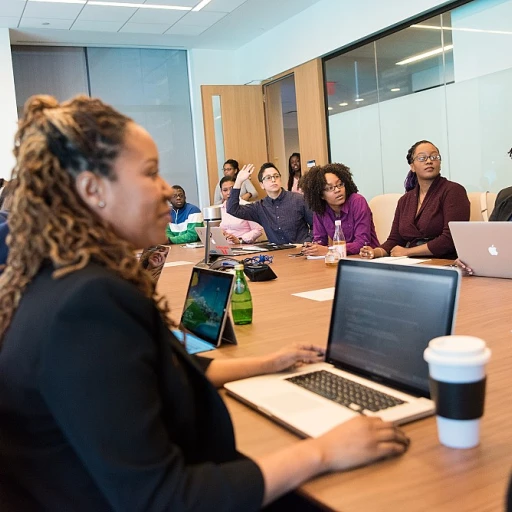Understanding Core HR Competencies
Identifying Core HR Abilities and Skills
Understanding HR competencies is like knowing how to handle a toolbox efficiently. You need the right skills, just like you need the right tools. In an HR role, key skills such as communication, problem-solving, and empathy aren't just nice to have—they're essential. You can't measure these with a ruler, but you feel their presence in every interaction during a job interview. A good HR candidate isn't just book smart; they possess practical skills that play out in their everyday tasks. Take communication, for example—it’s not simply about speaking well, it's about making your message land appropriately. The best HR professionals don't just speak at you, they converse with you. They navigate workplace mediation or explain complex policies in a way everyone can understand. Problem-solving is another critical skill that separates the good from the great. It's the ability to assess situations, identify issues, and implement efficient solutions—traits that make a strong HR candidate. Imagine an employee comes with a complex issue. A top-notch HR professional doesn't just apply a one-size-fits-all solution; they dig deeper, looking for the root cause, considering the company's rules and values. Adaptability in HR is similar to keeping your balance on a tightrope. The workplace is always changing, and how a candidate handles unexpected scenarios can speak volumes about their potential. Those who can pivot and change course smoothly will surely meld with the ebb and flow of any company culture. Assessing these capabilities in interviews involves more than just checking boxes; it's about understanding how candidates have used these abilities in past roles and predicting how they'll handle future challenges. Feedback is a powerful tool and should be woven into every part of the process, from questions to performance review. Constructive interview feedback helps hiring managers adjust and improve future interviews. It also offers candidates a chance to better themselves and align with company expectations. Credentials matter, but having real-world experience where candidates have demonstrated these skills can be a game-changer. It's not about counting qualifications; it's about gauging what they bring to the table. This understanding informs you when tailoring effective interview questions and behavioral interview techniques in the subsequent selection stages. Sources:- Society for Human Resource Management. "Employee Communication", 2023.
- Harvard Business Review. "The Art of Problem Solving", 2023.
Crafting Effective HR Interview Questions
Crafting Interview Questions That Hit the Mark
Balancing Technical and Soft Skills
A well-rounded HR professional needs a mix of technical skills and soft skills. Technical skills might include knowledge of HR software or legal compliance, while soft skills could involve empathy, adaptability, and teamwork. When crafting questions, aim for a balance that reflects the job’s demands. For instance, ask about their experience with HR software and how they’ve used it to improve performance.Behavioral Questions for Real Insights
Behavioral interview questions are a great way to assess how candidates have handled situations in the past, which can be a good predictor of future performance. These questions often start with "Tell me about a time when..." and focus on specific examples from their work history. This approach helps hiring managers gauge not just what candidates have done, but how they think and react under pressure.Assessing Cultural Fit
Cultural fit is crucial in any company. You want employees who will thrive in your work environment and align with your company values. To assess this, consider asking questions like, "What type of company culture do you thrive in?" or "How do you handle feedback and change?" These questions help determine if the candidate’s values and work style align with your company culture. Crafting effective HR interview questions is an art that requires understanding the role, the company, and the candidate. By focusing on the right mix of skills and experiences, you can enhance the interview process and improve your chances of finding the right fit for your team.Behavioral Interview Techniques for HR Roles
Behavioral Techniques: Getting to the Heart of HR Roles
When you're sitting across from a candidate in an HR interview, it's not just about ticking boxes on a skills checklist. It's about understanding how they think, react, and solve problems in real-world scenarios. Behavioral interview techniques provide a window into a candidate's past experiences, helping you predict their future performance in your company.
One of the most effective ways to assess a candidate's suitability for an HR role is by asking them to share specific examples from their past work. These examples should highlight their problem-solving abilities, communication skills, and how they handle challenging situations. For instance, you might ask, "Can you tell me about a time when you had to resolve a conflict between employees?" This question not only gauges their conflict resolution skills but also their ability to communicate effectively and maintain company culture.
Why Behavioral Questions Matter
Behavioral questions are a goldmine for understanding a candidate's soft skills and how they align with your company’s values. These questions provide insight into their adaptability and how they might fit into the team. A candidate's response can reveal their thought process and decision-making skills, which are crucial for any HR role.
Consider asking questions like, "Describe a situation where you had to adapt to a significant change at work. How did you handle it?" Such questions help you assess their adaptability and resilience, key traits for thriving in a dynamic work environment.
Crafting the Right Questions
Creating effective behavioral interview questions requires a clear understanding of the role's requirements and the skills you value in an employee. It’s important to align questions with the core competencies of the HR role you're hiring for. For example, if you’re hiring for a talent acquisition manager, focus on questions that explore their experience in recruitment strategies and their ability to improve the candidate experience.
As you refine your interview process, remember to incorporate feedback from past interviews. This feedback can help identify areas for improvement in your questioning strategy, ensuring you consistently attract top talent.
Ultimately, behavioral interview techniques are a powerful tool for hiring managers. They help you uncover the true potential of a candidate, ensuring that your new hire will not only fit the role but also thrive within your company's culture.
Assessing Cultural Fit and Adaptability
Finding the Perfect Fit: Cultural and Adaptive Skills in HR Interviews
Discovering how a candidate meshes with a company's culture and adapts to changing environments is crucial in the hiring process. Hiring managers often say that skills can be taught, but innate qualities such as adaptability and cultural fit are vital. One practical approach is to observe the candidate's communication skills. Look for specific examples in past experiences where they successfully integrated into a new team or adjusted to changes in their work environment. This will provide insights into their ability to adapt to the company culture and the human resource landscape. To achieve a better understanding, consider the following steps:- Ask Open-Ended Questions: Encourage candidates to discuss past roles and how they handled changes or conflicts. This will help you evaluate their problem-solving abilities and how they approach their work.
- Scenario-Based Questions: Pose hypothetical situations to see how candidates might react to unique company culture dynamics. This not only assesses their technical skills but also their soft skills, such as empathy and flexibility.
- Collaborative Exercises: These activities allow candidates to work in a group setting, providing a snapshot of how they might interact with teams and contribute to the company culture.
- Harvard Business Review, "How to Assess Cultural Fit in the Recruiting Process"
- Society for Human Resource Management (SHRM), "Navigating Cultural Fit in Hiring Decisions"
Leveraging Practical Assessments and Case Studies
Interactive Exercises: Gauge Practical HR Know-How



